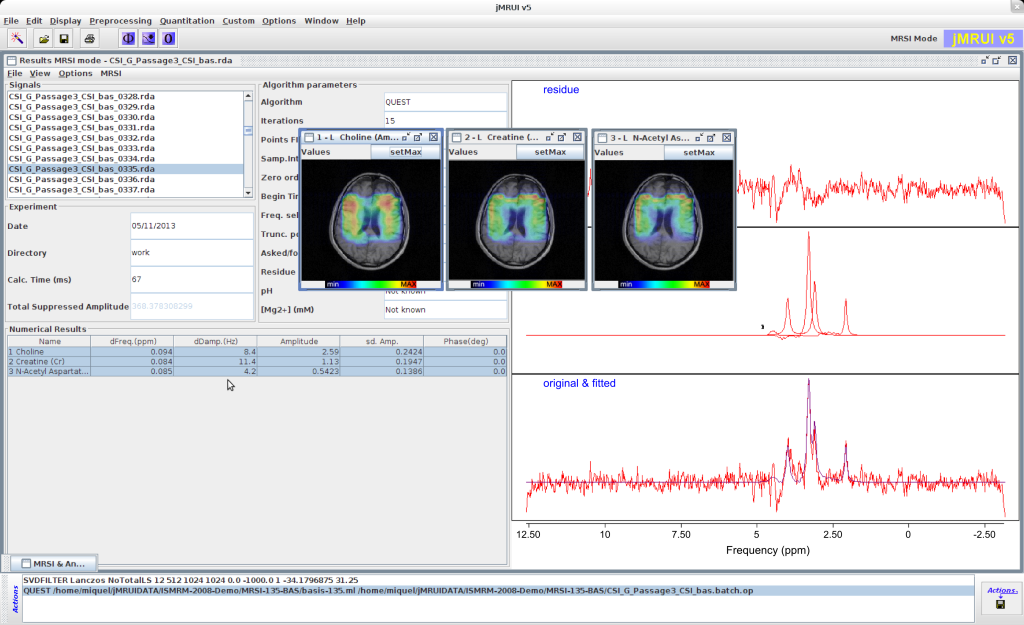jMRUI is a software package for advanced time-domain analysis of magnetic resonance spectroscopy (MRS) and spectroscopic imaging (MRSI) data. Through a user-friendly graphical interface biomedical researchers and clinical radiologists can use state-of-the-art signal processing algorithms to analyse and quantify spectroscopic data: from a single spectrum to a full multidimensional MRSI dataset.

The software interfaces algorithms for frequency selective filtering of signals (e.g., removal of residual water), correction of eddy-current artifacts, Cadzow signal-to-noise enhancement, linear prediction, non-linear fitting (quantitation of metabolites), and many more, all of them working in the time-domain to overcome the problems arising from FFT-processed data.
Additionally, jMRUI has a modular design that facilitates the development of plugins to further extend the core capabilities of the software; for instance to interact with PACS servers, to classify spectra, to simulate metabolite basis sets, etc.
Current versions
The current version is jMRUI 7.0 relased on 16th July 2023. This version requires 32-bits Java 7 or newer and runs on Microsoft Windows® 7/8/10 and GNU/Linux®, 32- and 64-bits.
The older version is jMRUI 5.2 relased on 25th May 2015. This version requires 32-bits Java 1.6 or newer and runs on Microsoft Windows® XP/Vista/7/10 and GNU/Linux®, 32- and 64-bits.
The older beta version is jMRUI 6.0 beta relased on 10th February 2017. This version requires 32-bits Java 7 or newer and runs on Microsoft Windows® 7/8/10 and GNU/Linux®, 32- and 64-bits.
License terms and cost
jMRUI is proprietary software distributed under its own license terms, and made freely available to registered users for non-commercial use.
Who uses it?
To date, more than 4550 researchers working at 458 hospitals and 1037 universities in 68 countries worldwide have licensed jMRUI and the number keeps growing. Among the licensees, there are spectroscopists, radiologists, physicists, biochemists and engineers from the most reputable research and clinical institutions in the world.
As of January 2019, a search for “jMRUI magnetic resonance spectroscopy” in Google Scholar returns about 3130 references excluding patents and citations.